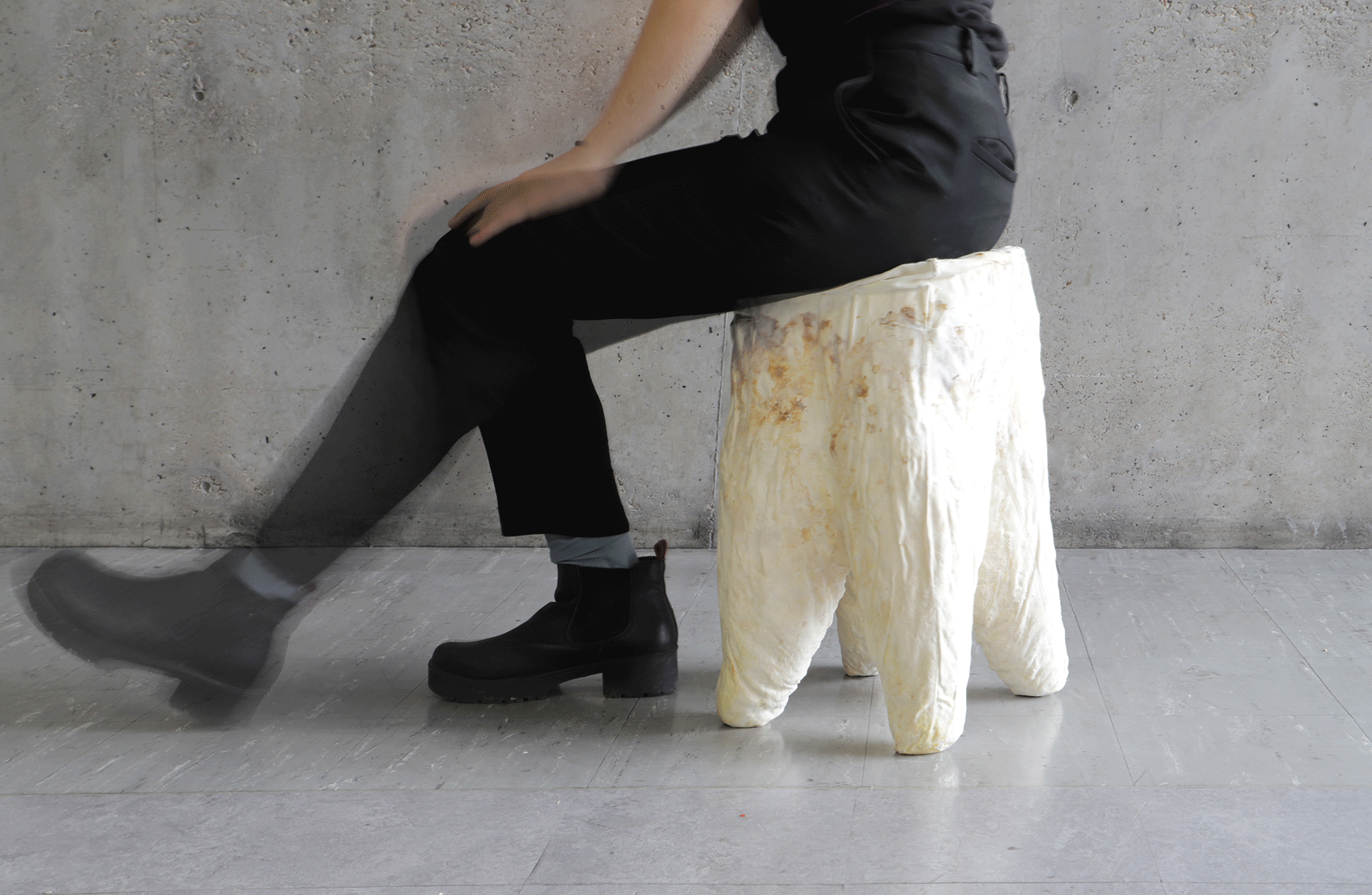La Muela
Mycelium Composite Stool
credits: Karen Antorveza, Laura Kiesewatter, Grzegorz Lochnicki, ITECH, BioMat, Institute of Biomaterials and Biomolecular Systems, Uni Stuttgart.
As a material for use in design, plastic became readily available and widely used in the 1950s. Since then, researchers extimate we’ve produced over 9 billion tons of plastic; and every single bit of this amount, is still sitting on our planet somewhere. The legacy of polymers tell us about today’s urgency to find and promote alternative materials, produced from clean sources and capable to create no impact on the ecosystems at its end of life.
At the intersection of biology and materials science, mushrooms are emerging as a promising focus of study. Mycelium, the vegetative part of fungus, is a renewable, biodegradable and growing material that eats plant waste and creates strong and durable structures. Mycelium-based composites can be categorized as foams, due to their high porosity and slight rigidity.
In this project, mycelium has been used in combination with a cotton fabric mould, which contains and shape the material during the growing process, and remains integrated as part of the object afterwards.
The raw esthetic of the stool is radical, same as shiny colours and fluid shapes of the early design experiments with plastic use to be.


